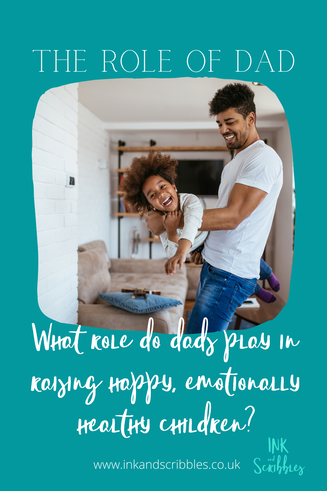 For a long time dads were a distant figure for children, even when living in the same home. A father was somebody who was out all day working and was to be left to rest on their return. A passive parent, leaving raising children to the mother, unless punishment was deemed necessary. Their traditional role was 'breadwinner', providing financially for the family. But the passing of time has seen change. The modern family looks different these days, with a variety of family set ups and mothers often contributing in a significant way financially. Research on child development and in the field of psychology has given us an emerging picture on parenting approaches and the true impact fathers have on children, from the quality of their sperm to the age of 18. Research is changing the perception of fatherhood. Conscious parents are redefining the role of dad. Because the studies are clearly suggesting that when it comes to emotional health in children dads do matter. A present and engaged father supports child wellbeing. Studies of children who are raised without a father figure suggest a correlation with anger, aggression, teenage delinquency and poorer outcomes in adulthood. An involved father seems to promote a child's cognitive development and social/emotional health. It's important to note that a father who is present but not engaged, warm or supportive within a family does not give children the same advantages. In fact, it is likely that a father who is present in the home but abusive, aggressive or emotionally unavailable could impact the future of a child in a similar way to not being present.
Dads help children develop their sense of self. For boys, they are role models, teaching them what it looks like to be a man. Boys who have supportive, loving and respectful fathers will model themselves on this experience. The book 'Raising Boys' by Steve Biddulph, is a really informative read on the various stages of boyhood and how fathers can influence and support their sons. He notes where dads are particularly influential and also when role models, other than a parent, also have crucial role to play. Girls tend to take less risks in adolescence when closely bonded with a father. They base their relationship choices on their experiences with their dad, meaning the interactions between parents is important. Dads can also significantly impact their daughter's confidence, particularly during the transition into teenage hood, with the way they choose to respond and interact with her. For example, consider how to respond when she voices her opinion, especially if you don't agree! Or think about how to empower her so she feels able to achieve the things she is capable of. Feeling shut down by your dad can create ripples that create consequences into adulthood, so it's worth making conscious decisions. Clearly not every child has a dad at home, or even active. As with many things, the outcomes suggested by research are not clear cut. There are exceptions and circumstantial variations that all play a role for individual families. For example, a child who has a very present and engaged single mother is also very likely to have very good outcomes in adulthood. In families where a divorce has featured, but parents communicate amicably and provide children with opportunities to bond with an engaged father, also do well. And children who don't have a father but do have a very engaged father figure, are also likely to do well. It's clear that active and engaged father's make an enduring and positive impact on their children. So, on this UK Father's Day, we celebrate all the dads, role models and those who consciously work towards teaching children what it means to be a dad.
0 Comments
Leave a Reply. |
Categories
All
Archives
April 2024
AuthorHey! I'm the founder, creator and voice of Ink and Scribbles. Sharing thoughts on child well-being and parenting that are based on my teaching and parenting experience, and NLP learning. |

 RSS Feed
RSS Feed